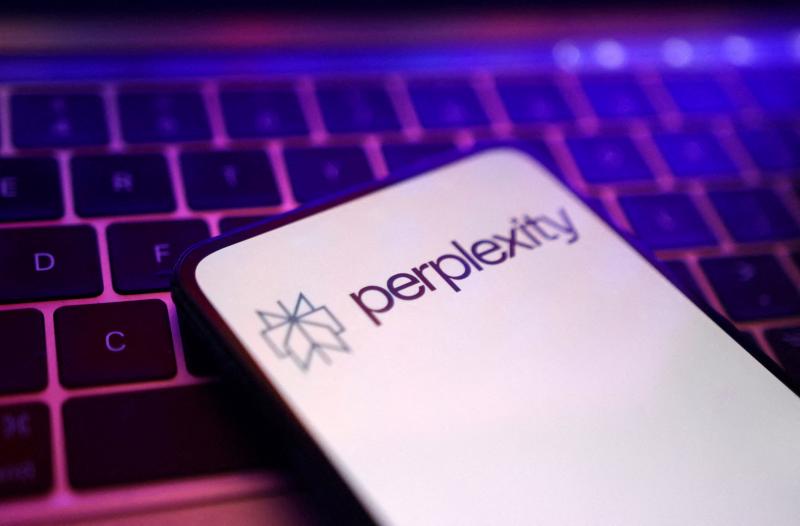GET AHEAD:
The AI start-up’s offer is an audacious bid to get ahead of a potential requirement for the search giant to sell the Web browser in US antitrust proceedings
AFP, SAN FRANCISCO, United States
Perplexity AI Inc yesterday offered Google US$34.5 billion for its popular Chrome web browser, which the Internet giant could potentially be forced to sell as part of antitrust proceedings.
The whopping sum proposed in a letter of intent by Perplexity is nearly double the value of the start-up, which was reportedly US$18 billion in a recent funding round.
“This proposal is designed to satisfy an antitrust remedy in the highest public interest by placing Chrome with a capable, independent operator focused on continuity, openness, and consumer protection,” Perplexity chief executive Aravind Srinivas said in the letter, a copy of which was seen by AFP.

Photo: Reuters
Google is awaiting US District Court Judge Amit Mehta’s ruling on what “remedies” to impose, following a landmark decision last year that said the tech titan maintained an illegal monopoly in online search.
US government attorneys have called for Google to divest itself of the Chrome browser, contending that artificial intelligence (AI) is poised to ramp up the tech giant’s dominance as the go-to window into the Internet.
Google has urged Mehta to reject the divestment, and his decision is expected by the end of the month.
Google did not immediately respond to a request for comment.
Perplexity’s offer vastly undervalues Chrome and “should not be taken seriously,” Baird Equity Research analysts said in a note to investors.
Given that Perplexity already has a browser that competes with Chrome, the San Francisco-based start-up could be trying to spark others to bid or “influence the pending decision” in the antitrust case, Baird analysts said.
“Either way, we believe Perplexity would view an independent Chrome — or one no longer affiliated with Google — as an advantage as it attempts to take browser share,” Baird analysts said.
Google contends that the United States has gone way beyond the scope of the suit by recommending a spinoff of Chrome, and holding open the option to force a sale of its Android mobile operating system.
“Forcing the sale of Chrome or banning default agreements wouldn’t foster competition,” Cato Institute senior fellow in technology policy Jennifer Huddleston said.
“It would hobble innovation, hurt smaller players, and leave users with worse products.”
Google attorney John Schmidtlein noted in court that more than 80 percent of Chrome users are outside the US, meaning divestiture would have global ramifications.
“Any divested Chrome would be a shadow of the current Chrome,” he contended.
“And once we are in that world, I don’t see how you can say anybody is better off.”
The potential of Chrome being weakened or spun off comes as rivals such as Microsoft Corp, ChatGPT and Perplexity put generative AI to work fetching information from the Internet in response to user queries.
Google is among the tech companies investing heavily to be a leader in AI, and is weaving the technology into search and other online offerings.

